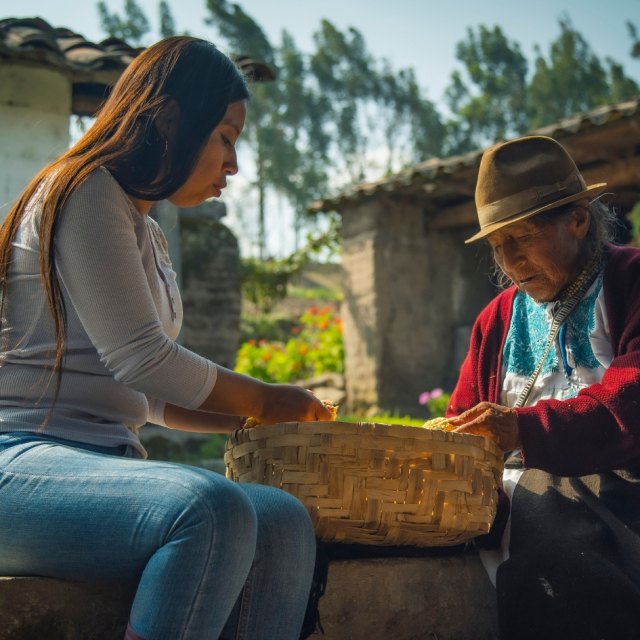Trade in Ecuador is one of the fundamental pillars of its economy, representing an activity that connects producers, consumers and international markets. With a privileged location in South America and a remarkable geographical diversity, the country has a variety of resources and products that have shaped its commercial landscape over the years.
Overview of Trade in Ecuador.
Ecuador stands out for its mixed economy, which combines traditional activities such as agriculture and fishing with more modern sectors such as oil and technology. Trade represents a significant fraction of the country's Gross Domestic Product (GDP), with both domestic and foreign trade being key to its growth.
Domestic Trade.
Domestic trade in Ecuador is dominated by small and medium-sized businesses operating in local markets, fairs and retail outlets. Major cities such as Quito, Guayaquil and Cuenca act as commercial hubs, concentrating large shopping centres, supermarket chains and specialist shops.
Informal trade also plays an important role, especially in urban areas. According to data from the National Institute of Statistics and Census (INEC), a large part of the working population is involved in informal commercial activities, reflecting both the creativity and the economic challenges of the country.
Foreign Trade.
Foreign trade is vital for Ecuador, especially in export products such as oil, bananas, flowers and shrimp. These goods represent the main generators of foreign currency for the country.
On the other hand, imports are concentrated in machinery, vehicles, chemical products and consumer goods. Ecuador's main trading partners include the United States, China, the European Union and countries in the region such as Colombia and Peru.
Main Business Sectors.
Agriculture and Agribusiness.
Agriculture is one of the most representative sectors of Ecuadorian trade. Ecuador is the world's largest exporter of bananas and plantains, and its products are in demand in international markets for their high quality. In addition, Ecuadorian cocoa, considered one of the best in the world, is used by international companies for the production of premium chocolate.
Other important products include:
Flowers : Ecuador is one of the main exporters of cut flowers, especially roses, which reach markets such as the United States, Russia and Europe.
Shrimp : The shrimp industry has experienced constant growth, positioning the country as one of the global leaders in shrimp exports.
Mining and Oil.
Oil has historically been Ecuador's main export product. However, price volatility in the international market and environmental challenges have led the country to diversify its sources of income.
In terms of mining, Ecuador is exploring its potential in the extraction of copper, gold and other minerals, which could become a key sector for trade in the coming years.
Tourism.
Although not always considered a commercial sector in the traditional sense, tourism is an important source of income for Ecuador. Destinations such as the Galapagos Islands, the Amazon and the Andes attract tourists from around the world, generating foreign currency and promoting local trade.
Challenges of Trade in Ecuador.
Infrastructure.
One of the main challenges for trade in Ecuador is the improvement of its infrastructure. Although significant investments have been made in roads and ports, there are still limitations that affect the competitiveness of Ecuadorian products in the international market.
Bureaucracy and Regulations.
Trade, both domestic and foreign, faces bureaucratic barriers and costs associated with customs procedures, licenses and permits. These difficulties can discourage small and medium-sized businesses, limiting their ability to expand.
International Competition.
In the area of foreign trade, Ecuador competes with countries such as Colombia, Peru and Chile, which also produce similar goods. This requires Ecuadorian products to maintain high quality standards and competitive prices.
Strategies for Strengthening Trade.
Market Diversification.
One of the main strategies to strengthen foreign trade is market diversification. Ecuador has signed trade agreements with countries and economic blocs such as the European Union, which allows preferential access for several of its products.
Boosting Innovation.
Support for technology and innovation is also crucial for trade. Digital platforms and e-commerce have opened up new opportunities for small entrepreneurs, allowing them to reach global markets without the need for intermediaries.
Sustainability.
The adoption of sustainable practices is becoming increasingly important in international trade. Ecuador has begun implementing measures to ensure that its products are environmentally friendly, which may increase its appeal in markets such as Europe and North America.
With the growth of emerging sectors such as technology and mining, as well as the strengthening of the agricultural industry, trade in Ecuador has a promising future. However, it is essential that the country addresses existing challenges and continues to invest in infrastructure, education and technology to remain competitive in a globalized market.
Sources consulted:
